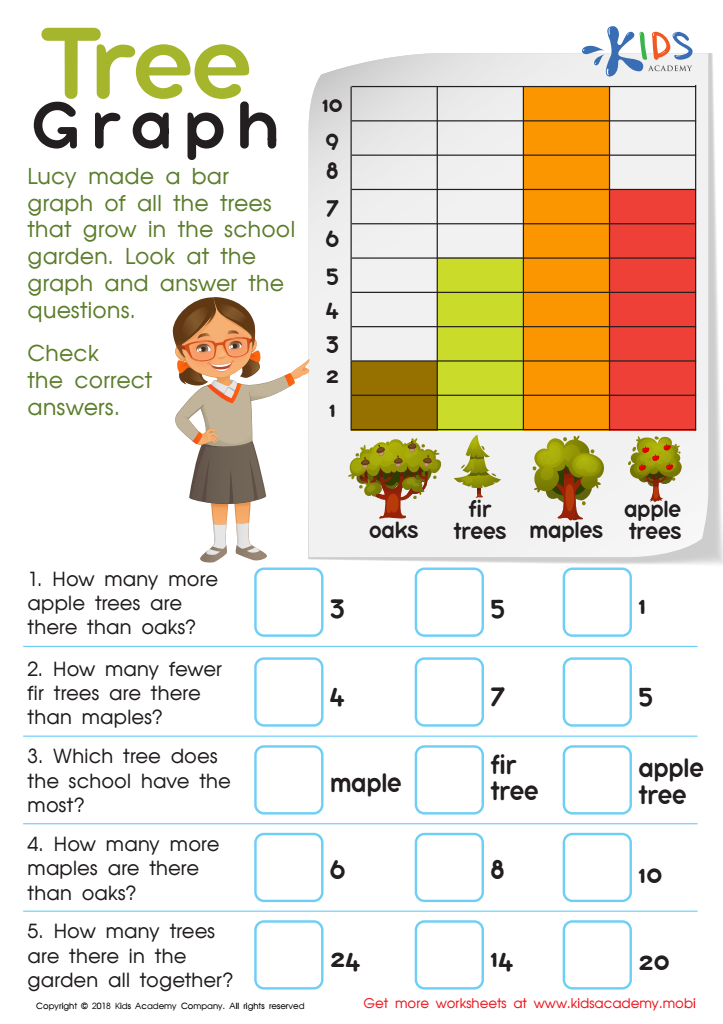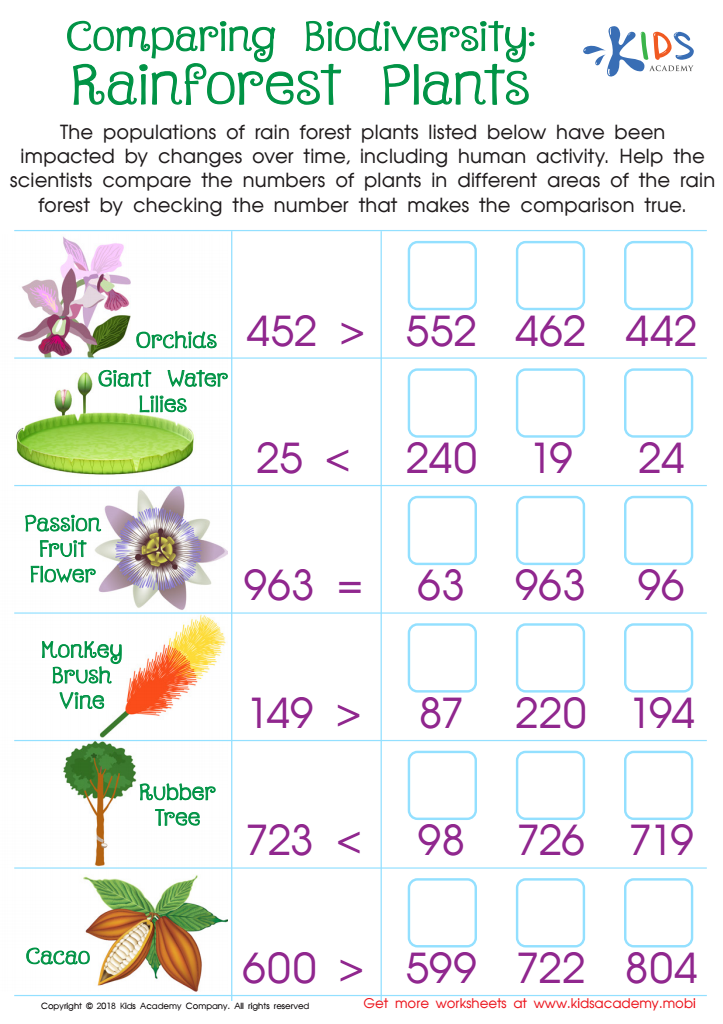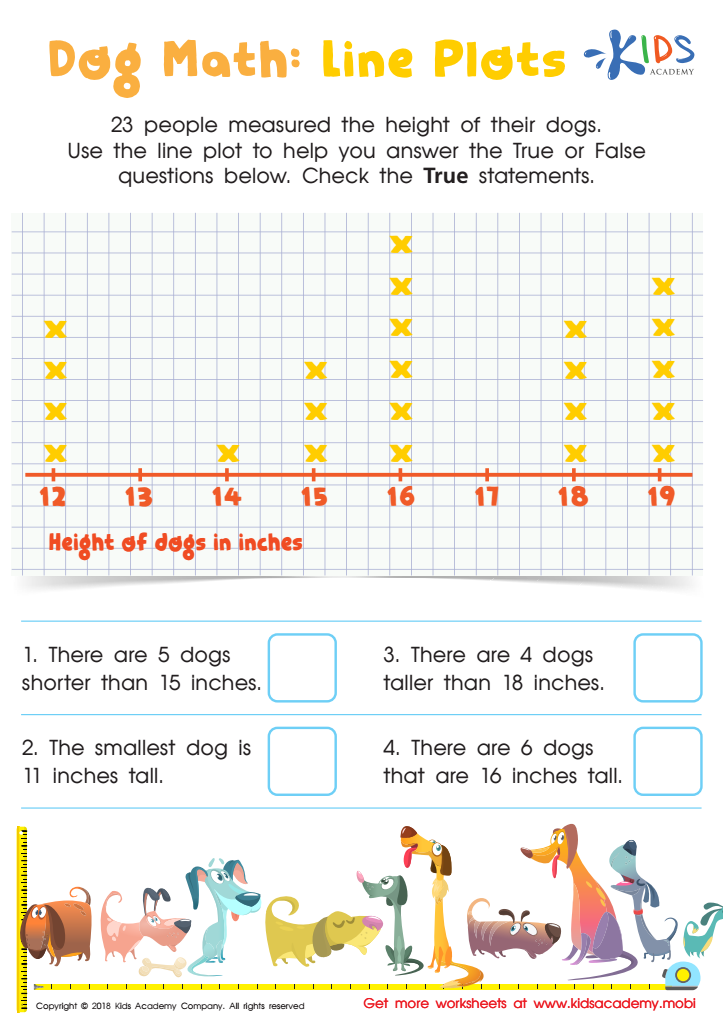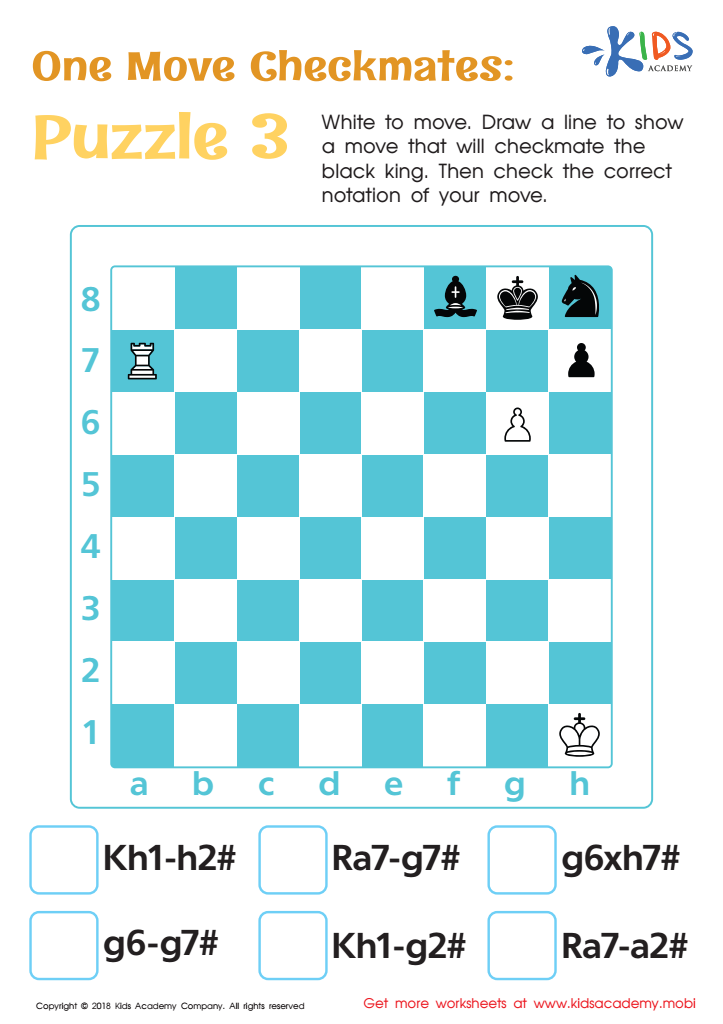Analytical skills development Math Worksheets for Ages 3-7
4 filtered results
-
From - To
Unlock your child's potential with our engaging Analytical Skills Development Math Worksheets designed for ages 3-7. These worksheets promote critical thinking and problem-solving abilities through fun, interactive activities. Each worksheet is tailored to enhance children’s ability to analyze patterns, understand relationships, and make logical connections—all essential skills for early learners. A diverse range of captivating exercises keeps young minds engaged while reinforcing foundational math concepts. Perfect for home or classroom use, these resources foster a love for learning and set the groundwork for future success in math and beyond. Start your journey towards nurturing confident, analytical thinkers today!


Tree Graph Worksheet


Comparing Biodiversity: Rainforest Plants Worksheet


Dog Math: Line Plots Worksheet


One Move Checkmates: Puzzle 3 Worksheet
Developing analytical skills in young children, especially in the context of mathematics, is crucial for their overall cognitive growth. From ages 3 to 7, children's brains undergo significant development, making this an ideal time for building a strong foundation in critical thinking and problem-solving. When parents and teachers prioritize analytical skill development in math, they lay the groundwork for future academic success.
Analytical skills enable children to assess situations, identify patterns, and make logical connections—essential abilities in mathematics and everyday life. Engaging in math-related activities, such as sorting objects, recognizing shapes, and exploring simple number operations, helps foster these skills. This development not only aids in mathematical understanding but also promotes confidence and encourages a positive attitude towards learning.
Moreover, analytical skills intersect with literacy and emotional intelligence, preparing children for complex problem-solving in various academic disciplines and social situations. Empowering children with these essential skills will help them navigate challenges and foster resilience. In an increasingly complex world, nurturing analytical thinking ensures that children are well-equipped to adapt, innovate, and succeed in their educational journeys and beyond. Therefore, parents and teachers should invest time and resources into cultivating these critical skills during these formative years.
 Assign to My Students
Assign to My Students





.jpg)















